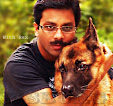Elderly or Senior Dog Caring Tips
We have been getting request for more information and help via Messages on our Welcome Dog Lovers Facebook Page. We have selected some interesting questions related to Senior Dog Caring Tips and tried to answer them in a way so as to make a nice blog post. We thought his will be of great help to our readers.
1) My Rottweiler is 11 years old. Should I consider him to be too old? Does it mean that my dog has reached an age of approximately 77 human years? Can my elderly dog be considered to be as safe with unknown children as he used to be three-four years back? We are concerned about him and keep eye on his health. We do not skip regular visit to our vet to ensure he keeps well.
(Query by Ketevan lobjanidze, Tbilisi, Georgia. Thank you Ketevan)
Your dog ages faster than you. Major health changes naturally occur in quite a high pace than in humans. Aging in animals actually vary and in the canine kingdom aging varies from type to type. While for small and toy breeds 7 years is an old age, for a medium and large breeds (having shorter span of life) the age of 6 years is considered geriatric. Your Rottie, at an age of 11 years is senior dog and you are already taking take special care for him. We oppose the popular belief that 1 year of a dog's life is equal to 7 years of a human's life. Practically, there's no logic to consider such calculation as reliable.
At this age many dogs tend to become more aloof than before, thereby developing behavior issues. They need good amount of rest without disturbance. Behavior may become unpredictable in a senior dog, hence unknown children should not be allowed near him unsupervised. It is always advised to keep children near an old dog under supervision.
2) I am Seaneka Nixon from Freeport, Bahamas. I have been a loyal reader of the chapters in your website since four years. I have 2 German Shepherd Dogs, named Rolley and Abey. Rolley is 12 years and Abbey 10+. Both of them are showing changes in their behaviors. Both Rolley and Abey are gradually becoming more and more dependent on me and my husband; Rolley more on me. Rolley has always been a very nice dog and even at his age of 12 years he is very friendly and docile, but he shows occasional uncharacteristic aggression, which most of the times becomes unpredictable. So far we have not noticed any kind of such aggressive behavior in Abey. What signs related to their behaviors and health should we be concerned about in our older dogs?
(Query by Seaneka Nixon , Freeport, Bahamas. Thank you Seaneka)
Both your dogs – Rolley and Abey are older dogs and behavioral changes in them are quite normal and should not be surprising. There may be significant changes in behaviors in a senior dog.
Here are the few behavioral changes that you may notice in your geriatric dog:
- Less interested in petting
- Less interested in interactions, greeting people, kids or other animals
- Less interested in exploration
- Less interested in exercises or play
- Do not respond much to things going on around him
- Becomes overly dependent
- Sometimes wanders about aimlessly
- Sleep less in the night and more during the day time
- Behaves more irritably, accompanied with unpredictable aggression
- Inconsistent behavior – Not necessarily aggression, but also includes a Developing tendency to lick your face more frequently
- Noticeable increase in anxiety
- Develop tendency of house soiling
- Repetitive activity
- Increased vocalization
Here are some more clinical symptoms:
If you notice any signs like the ones mentioned below or any other signs that are unusual you should get in touch with your vet instantly for checkup.
- Solid-appearing lumps or bumps on your dogs’ skin
- Constipation or diarrhea or inconsistency in releasing bowel
- Shortness of breath
- Coughing
- Body stiffness
- Weakness
- Sudden deterioration of health
- Unusual discharges
- Changes in weight (getting too heavy or too thin)
- Changes in appetite (tendency to eat both more or less)
- Changes in frequency of urination or changes urine color and smell
- Changes in water intake (both overly decreased or increased water intake tendency)
- Stiffness or limping
General health risks that an elderly dog may get exposed to are:
- Cancer
- Heart disease
- Hepatic (liver) disorders
- Hyperglycemia (increase in blood sugar level)
- Hypoglycemia (decrease in blood sugar level)
- Joint or bone issues
- Renal (kidney) or urinary tract disorder
- Senility and Dementia
- General Debility (Weakness)
3) Hi, My name is Megan, and I live in Ashford, Kent. Wax – my beloved German shepherd is getting older. What kind of a food management should we follow for Wax? Is there any special type of senior dog food types to be followed for Wax? He has always been on home made diet and we have He is over 8 years and will be 9 in March 2015. We are a dog lover family. All of us in our family want Wax to stay happy and healthy all through! Waiting in the anticipation of your valued response soon.
(Query by Megan, Ashford, Kent. Thank you Megan)
We would not suggest you any abrupt change his Wax’s food components and diet system, as long as he gets all desired nutrients to keep healthy and happy! Since Wax is an elderly dog he should have a maintained diet with controlled amount of carbohydrates, fats and proteins. Obesity in dogs happens when your dog gets an inadequate level exercise and the extra glucose that is converted by the digestion of carbohydrates gets stored as fat. Moreover in an elderly dog maldigestion may occur at any point of time due to the sudden change in food.
A good senior dog food should contain natural enzymes necessary to break down carbohydrates. You can try yogurt, broccoli, parsley, papaya, carrots. If your dog shows no unusual symptoms, you can carry on with these along with the existing food.
Yogurt is a rich source of Probiotics - beneficial bacteria that enhances digestive health, and hence this is a wise addition to your senior dog food.
Egg is rich source of protein and is directly associated with several health benefits. Boiled eggs are easier for your geriatric dog to digest.
Liver is nutrient-dense food, having all essential vitamins and trace minerals and can help your elderly dog to keep healthy. You can feed small amounts liver regularly.
Fish is rich in omega-3 fatty acids that support immunity. Fish such as salmon and trout can be added to your dog’s diet. Raw salmon may lead to salmon poisoning and can be potentially dangerous.
Meat - Lamb, beef are good because they are rich source of iron, zinc and other essential nutrients. Organ meat, such as liver, heart and kidney, added to your senior doog food a few times a week is a great idea. Chicken heart, liver and neck are good for your elderly dog.
4) I will be taking my elderly dog - 11 year old girl, Cindy, to the vet in a week or so for a yearly health check-up. I know that that my regular vet will not be at her desk as she’s out of the country for a couple of months and a new vet will be there whom I do not know much.
My concern is if I should go for vaccinating my girl. As I told she’s already 11 years old, will the normal vaccination that I gave her all through her life each year (4-in-1 vaccine that covers Distemper, Adenovirus, Parainfluenza, and Parvovirus) be safe for Cindy?
(Query via Email - Name: Judy Ashley as per email signature and Place not mentioned)
Especially when it comes to an senior dog Cindy’s vaccination requirement may be different. It is highly suggested that you should talk to your regular vet who has been checking Cindy for so many years. Also keep in mind that Older dogs usually have impaired immune system that doesn’t work as good as a young dog. Also very important to beer in mind is that the vaccines that Cindy may need may be based on where you are currently living and the environmental condition you have.
5) Hi. My name is Jerry, owner of a small restaurant here in Jacksonville I have a 10 year old Neopolitan Mastiff Rado. Rado seems to be in pain. He is not active as he used to be. I have talked to my Vet and he says Rado’s developed arthritis? Any suggestion?
(Questioned by Jerry from Jacksonville, Florida. Thank you Jerry)
Great that you have already talked to your vet and got Rado examined. Arthritis is too common in the older dogs, especially in the large and heavy weight breeds like Danes, GSD, Mastiffs, labs etc. Other joint disorders are also common found in the elderly dog.
I would suggest a giving Rado a good diet, avoid over-feeding, avoid high protein diet. Omega-3 fatty acids, especially EPA, has been found to be having high benefit in reducing arthritic inflammation. omega-3 fatty acids also prevents cardiac problems associated with old age in dogs.
Nonsteroidal anti-inflammatory drugs (NSAIDS) is the most common treatment for arthritis in elderly dogs, and should only be administered under a strict supervision of a experienced and registered vet.
Related Reads

























0 comments:
Post a Comment